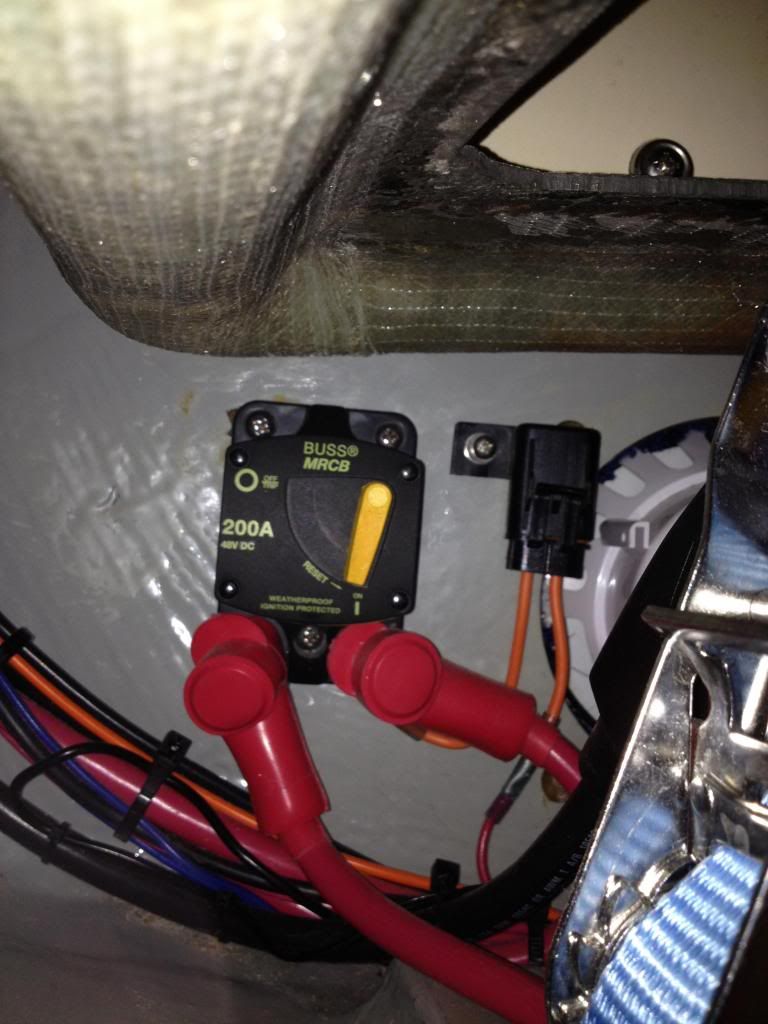Re: Fuse For Battery Cable Protection
As I understand such an event, it would seem like there was some very serious current flowing to produce such high heat...
And there is some very serious current flowing!
A motor is NOT like a light bulb, The current it will draw is determined by its
Inductive Reactance which changes dramatically with the RPM.
A slightly simplified explanation...
A starter motor may have an inherent Resistance in the neighborhood of 0.01 (1/100) ohms.
If it is NOT turning it will draw over 1000 amps. At normal speed it will draw ~200 amps.
If the bad battery post also has 0.01 ohms, and Yes! That is almost nothing, but it is a Fatal almost nothing;
The total circuit resistance is 0.02 ohms, and at 12 volts produces 600 amps and 7200 Watts!
BUT! the 0.01 ohms at the battery terminal is going to drop 6 volts at 600 amps.
The other 6 volts is all that Starter Motor gets, so it stalls, and as not turning, just remains a 0.01 ohm resistor.
Both that starter and the Battery terminal are going to share that 7200 watts equally.
At 3600 Watts, the starter being physically large is still going to get seriously hot in short order.
The little lead battery post doesn't do as well. The 3600 watts will have it melting in a few seconds!
A second later, the battery cable falls off and the disaster ends.
On second thought the Battery Cable IS Fused! The Battery Post is the Fuse!
Battery Cables and Connectors require less than 0.001 (1/1000) ohms for proper operation.
You can not measure resistances that small with common test equipment.
Proper, secure, and spotlessly clean connections are mandatory.




















